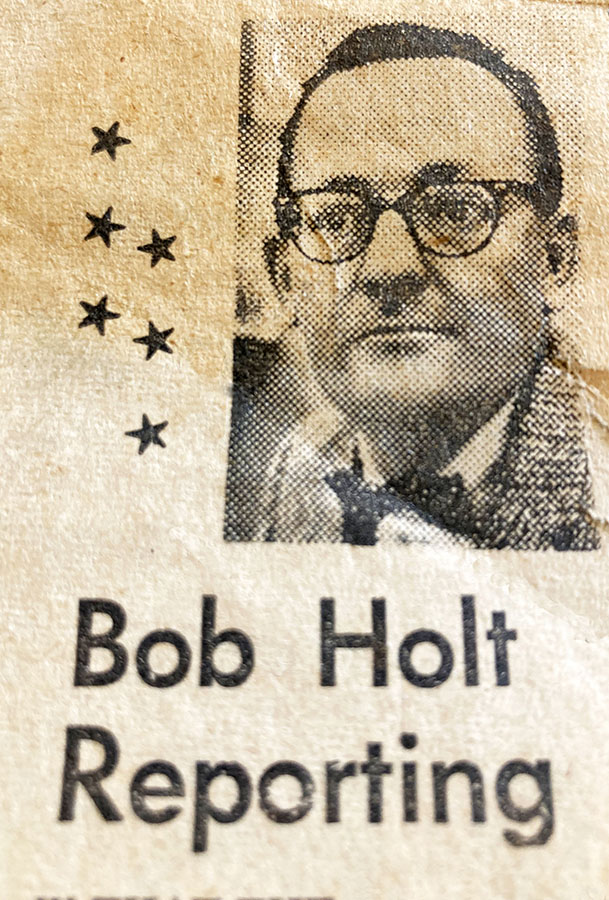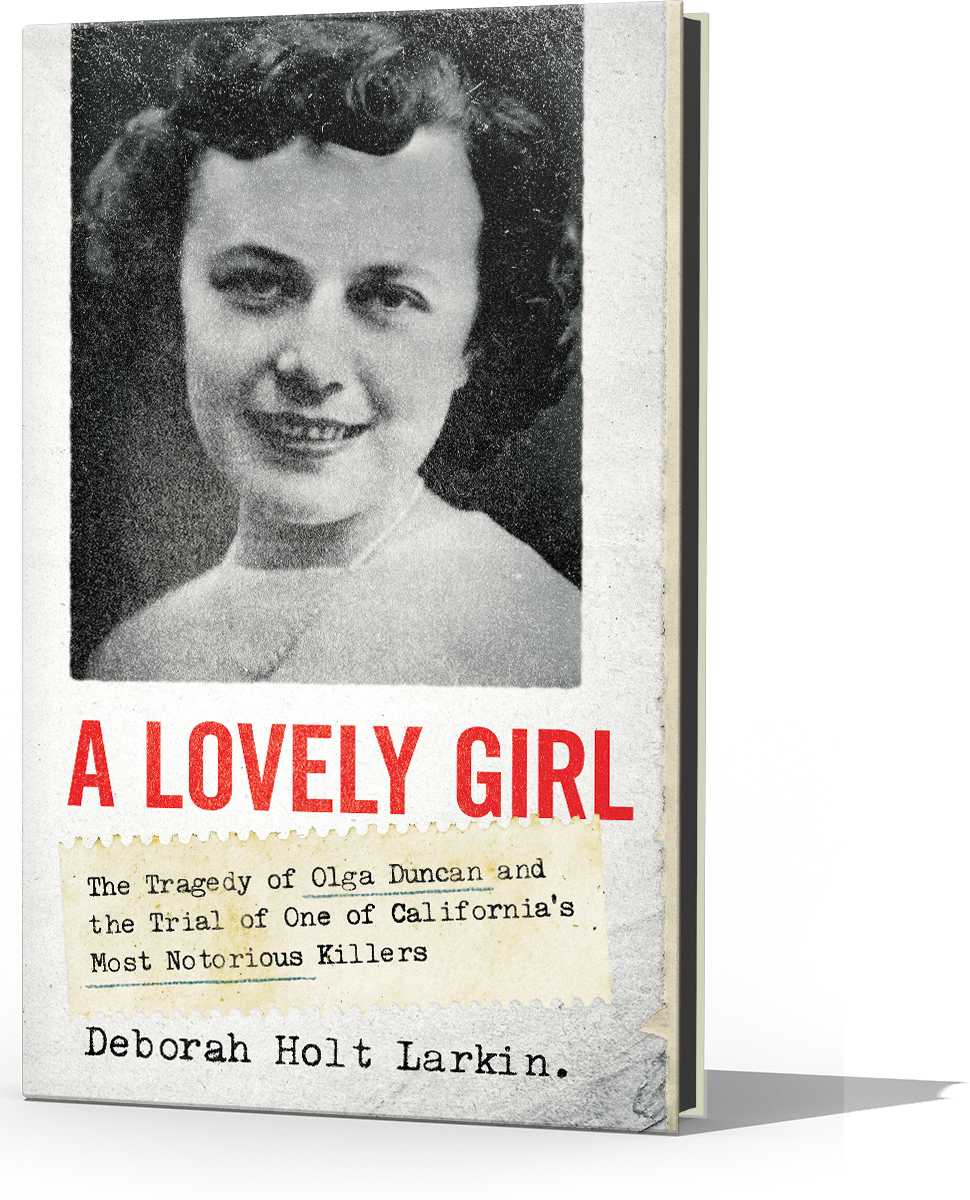BOB HOLT REPORTING
Our Place is ‘For the Birds’ Now
June 2, 1962
For a long time, I had the half-formed idea in my mind that I wanted to put a bird feeding tray in the front walnut tree to encourage more songsters to hang around our house. It buoys my spirits to awaken mornings to the twitters and trills of birds.
So, when I saw such a tray for sale in a market, I bought it, along with two one-pound bags of wild bird seed. At that time, I never imagined that within a few short weeks, the birds might threaten to take over. “For the birds,” as far as I was concerned, was just an expression, certainly not a description of our premises.
Little did I know.
In this climate, it is difficult to feel great solicitude for our feathered friends. I can’t remember ever having seen a skinny bird in my life. Tossing out bread crusts when the snow and ice covers the ground back East is an act of mercy. But our problems are different.
I have managed to multiply the birds, but not the singing. No more than you and I can a bird warble with a beak full of grain.
It is pretty tricky the way the birds handle that grain tray – a “bird cafeteria” the manufacturer has dubbed it. The thing sways on a string from the tree and it is filled, by me, from the top standing on a stepladder.
First, three or four stubby birds, the beefy types, land on the tray’s edge and teeter there. This casts down a drizzle of grain on the ground below, where it is quickly gobbled up by the birds who are standing around. Sometimes, they raise their heads and cheep – for more grain, presumably.
Those first, absurdly small packages of bird seed lasted only until the word had flashed through the bird world, and the rush was on. My next purchase was ten pounds. To keep things going, I fear I may have to come to terms with a grain and feed dealer, and buy in 50-pound lots.
Having turned these birds on, as the expression has it, I now find that if their grain tray gets low, they forage for other provender, such as my wife’s berries growing along a nearby fence. Clearly, things are out of hand.
Although I study the birds through field glasses sometimes, and take notes of their markings, I don’t know, or particularly care, what kinds of birds they are. My wife, though, is of a different sort. Hers is a New England heritage including a childhood filled with bird walks. She can name the common varieties at a glance, and keeps her bird books readily at hand for the quick identification of rarer species. She is not a member of the Audubon Society, but perhaps as the poet Ogden Nash once remarked, she Audaben.
Once, about a year ago, she noted a Goeldner Woodpecker in the tree, and her face was wreathed in a delighted smile. One almost expected the bird-walk leader to step up and award her points. Recently, she identified a colorful bird in the pyracantha bush as a Baltimore Oriole. Or maybe a St. Louis Cardinal. I’m sure it wasn’t a Chicago Cub.
Once a year, a swarm of little, tiny birds, grackles I think they are called, swoop down and clean all the berries off the pyracantha. But with the front yard as full of birds as it is this year, they may not get clearance to land.
For the first time, a bird’s nest is now abuilding under our eaves. It is a mud nest, and it is being put up by swallows without a permit. Frankly, I think they have picked a poor place for the nest, constructing it flat against a vertical wall. I took a rake and tried to point out to them another place nearby, under the eaves with a gently sloping floor and a nice overhang which I thought would be ideal for a nest. But you can’t tell a swallow anything, I have concluded. I feel like running out in the yard and shouting, “Back to Capistrano with the lot of you!!”
There have been two disturbing items in the news in recent weeks where birds flew into houses by the hundreds, inflicting great damage. One of these instances was in Riverside, the other in northern California. In both cases, they flew down the chimney. Under a sky darkened by wings, and with the whir of them in my ears, I am at least grateful that we have no chimney.
Any bird that pecks at our door will not be admitted.


